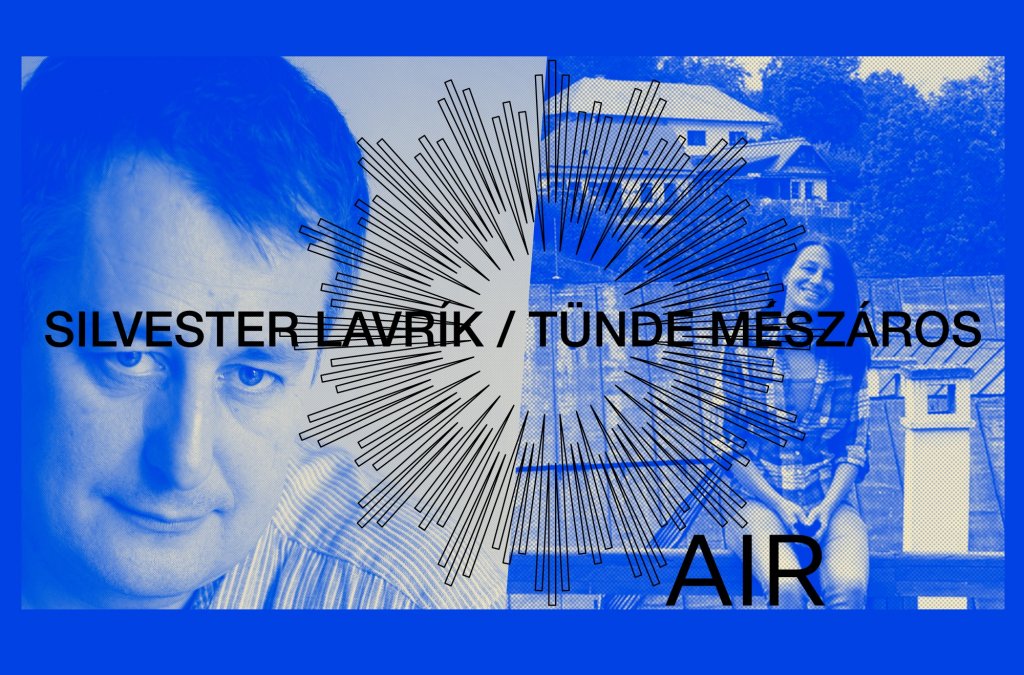
Translator Tünde Mészáros is another recipient of the TROJICA AIR residency in Banská Štiavnica. She is translating the book Nedeľné šachy s Tisom (Sunday Chess with Tiso).
During the course of each residency an event takes place in Banská Štiavnica at which the translator - author tandem is introduced. On Thursday, August 13th, Tünde Mészáros will talk about literature with Silvester Lavrík in Eleuzína (Horná ružová 1, Banská Štiavnica). The discussion starts at 6PM and you can find more information here.
Tünde Mészáros translates into Hungarian and lives in Budapest. She has translated books of Veronika Šikulová, Pavol Rankov, Ondrej Štefánik, Daniela Kapitáňová ant others. Her translation of Nedeľné šachy s Tisom (Sunday Chess with Tiso) received financial support from the Slovak Arts Council. Here is an interview with her.
Why did you decide to translate Lavrík's Sunday Chess with Tiso? How can the book be interesting for Hungarian readers?
I have been aware of Silvester Lavrík and his work and for years, I had him filed as an outstanding author with a distinguished style in my imaginary literary archives. When fellow translator and facilitator of the Hungarian-Slovak literary exchange Renata Deáková pointed out Sunday Chess to me, I started reading it and its style instantly appealed to me. I scanned through a couple of reviews and was irrevocably hooked. First I contacted Margit Garajszki, the translator of some of Silvester Lavrík's previous books, to find out whether she had plans with this novel as well and when she said no, I contacted the author who agreed with the translation.
The history of the nations of Central Europe is intertwined to such an extent that I doubt a nationally sterile historical novel could by written anywhere within this region or about this region. This is true especially within the Slovak-Hungarian relations so one would expect the literary borders to be open and yet they are not. We, the readers on both sides, are taking small steps in finding out that our neighbor can be interesting, too. Lavrík's novel presents one such step as we are all in it: Slovaks, Hungarians, Jews, perpetually looping in the same historical situations.
What poses the biggest challenge within this specific translation?
This is more of a universally valid answer concerning translation in general: to find the language. A language that would mirror the fluidum of the original work in the most sensitive way. First-person novels that speak in one voice over hundreds of pages are a specific category and Sunday Chess with Tiso is precisely this type of novel written in the first person. When facing challenges like this one, I always imagine an actor preparing for a role in a monodrama. I think this must be how they feel. The character must not veer off the rails the author had constructed. And this dancing with your hands and feet tied (as the Hungarian poet and prose writer Dezső Kosztolányi had defined artistic translation) can sometimes feel like an almost perverse pleasure.
Does the residency suit your working style? Are you able to better concentrate here?
Creative solitude is a beautiful thing, one does not need to think about renewing the children's metro-cards or about the electrician coming to repair that thingy. I had left the part that is most difficult for me but really the most important for the residency: the last check of the text before it goes to the editor. The effectivity of my efforts is not touched by electricians and other professionals here (aside from a short episode when someone came to fix the shower drain) but there is another risk factor. I have tried to resist but the town has conquered me, melted me, charmed me forever. So now we negotiate my time, the town and I. Mostly I win but sometimes it feels like a Pyrrhic victory. In these surroundings however, even that feels good.
What else are you working on these days – other translations, your own texts and such?
Similarly to Tiso, the Hungarian version of Peter Balko's Vtedy v Lošonci as well as selected poems of Peter Macsovszky written under various pseudonyms are basically just waiting for the editorial work. At the end of the summer I will gradually start translating two other books: The Bonnet by Katarína Kucbelová and the documentary novel Donbas by Tomáš Forró. Aside from these projects I also have more abstract future visions. I would like to translate more poetry and I would also like to start discovering territories so far unknown to me: the translation of plays.
I'm not writing anything authorial and I'm not planning to. I imagine my future professional life as it is now, living off the texts of others. :-)